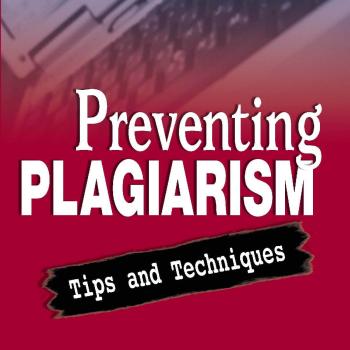Book
Preventing Plagiarism: Tips and Techniques

Grades
9 - 12
Type
Book
Pages
117
Published
January 2007
Publisher
NCTE
Get this book
Description
DeSena offers a practical guide on how high school and college teachers can structure assignments and guide students so that students don't plagiarize.